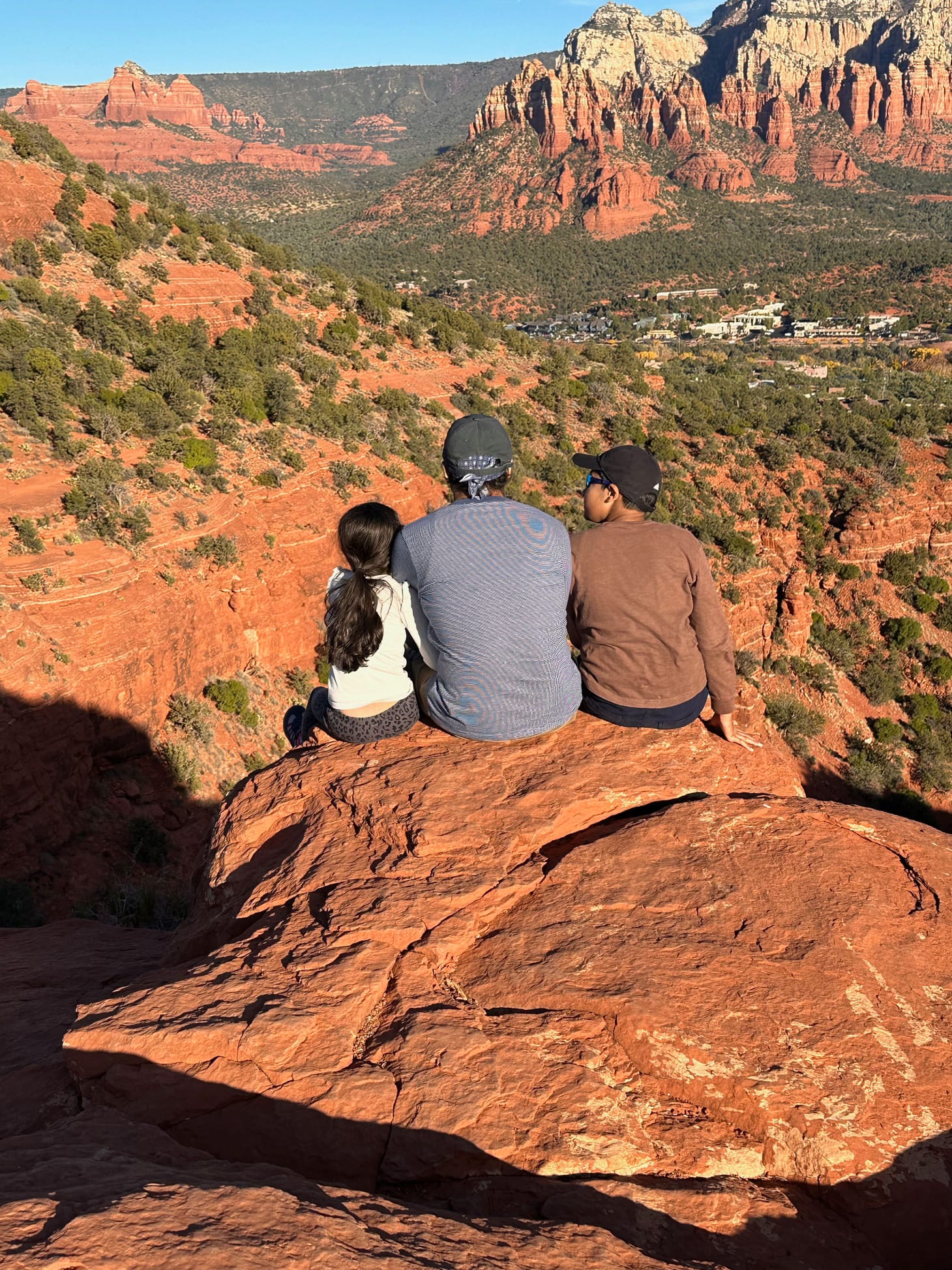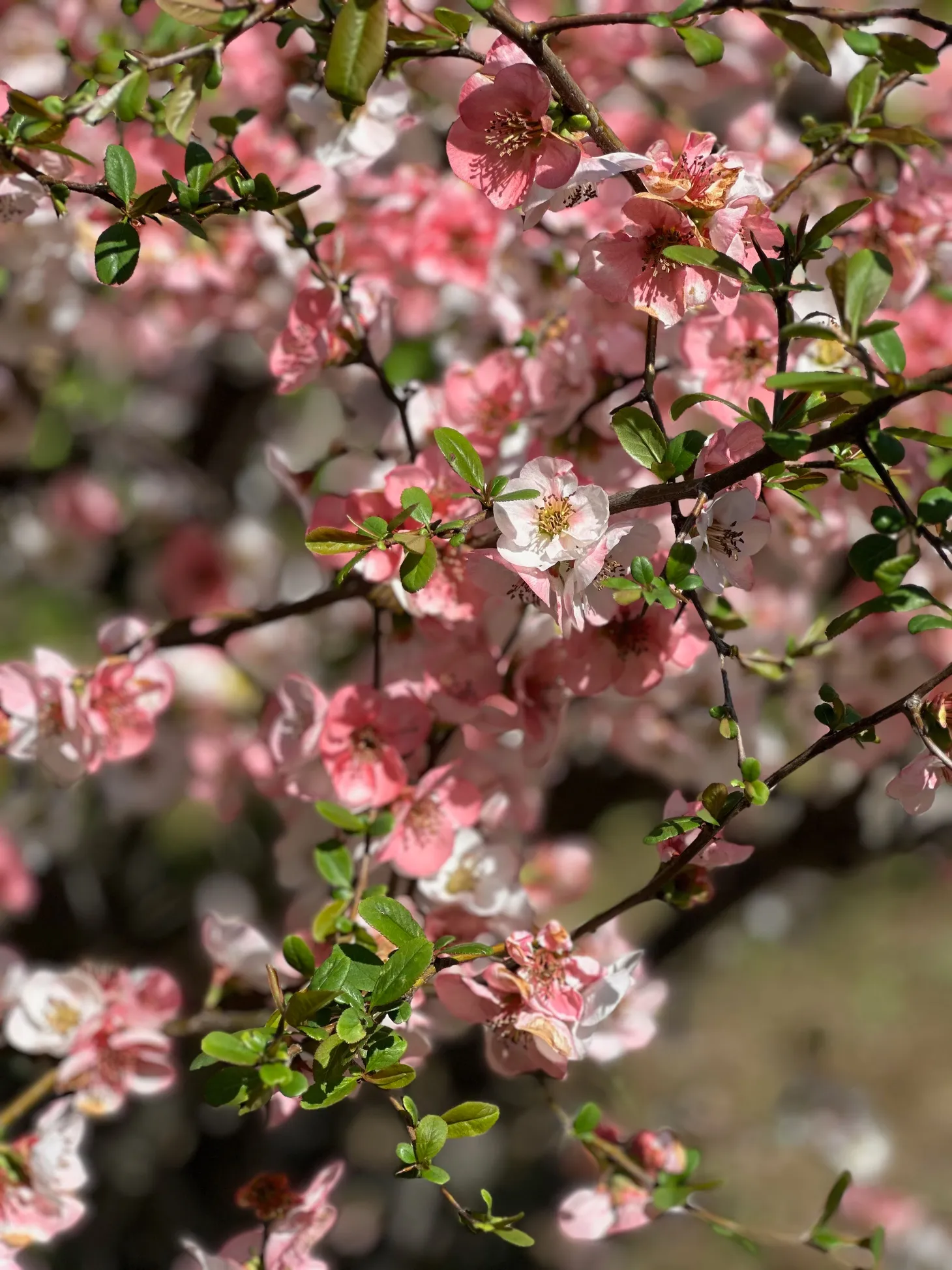On Fatherhood, Responsibility, and Meaning
Fatherhood is a bigger source of meaning than I ever imagined after becoming a father.

During a congratulatory call after my son Agam's birth, one of my wife's uncles remarked to me:
"Welcome to Fatherhood. It's a hood that never comes off."
We both broke into a laugh. I don't know why he laughed, maybe at the wittiness of his remark or maybe to signal that it was a joke. I think my laugh, though, was more in defiance of the remark's intent. Oh, are you trying to scare me about the burden of fatherhood? Whatever, I will laugh about it.
That was then. Agam is 11 years old now, and my daughter Suhavi is 7.
However, that brief exchange about the "hood that doesn't come off" has stayed with me. The memory of it has come back to me many times. Each time I reflect on it, the meaning of the exchange changes for me. Over time, I have felt my wife's uncle wasn't just joking. He was initiating me to something that he knew more about.
The metaphor of the hood referred to the responsibility of being a father and a parent. While you can ignore that it is there, you can never take it off.
Now, much has been written about being a father and a parent and how to deal with the responsibility of being one. I don't want to get into any of that. I want to write about my experience engaging with the responsibility of being a father and a parent.
11 years into my fatherhood experience, I can't recognize the person I was in late 2012, just before Agam was born. In that sense, engaging with the responsibility of fatherhood has been transformative for me. Even though I resent the burden at times, I have learned to love the hood.
Being a Parent vs. Being a Father
I am amazed how our psyche retains some things we hear, even though we don't fully understand them when we hear them. Like the following sentence about being a father that I heard someone say on a podcast: "I hate being a parent, but I love being a father."
I retain no other context from the podcast, but this anecdote has stuck with me. I'd like to think this happens when you hear something that resonates with your personal experience. I was merely intrigued when I heard it, but I vehemently agree with the podcast guy now. I hate the grind of being a parent, not always, but enough that I can't simply ignore it.
In simplest terms, being a parent refers to doing the daily chores of raising kids. It starts with waking up at night to feed them, changing diapers, and running around to stock the household with baby supplies. As kids grow, the chores evolve. In a few years, it becomes the constant juggle of pick-ups and drop-offs, scheduling play dates, and taking them to events and things like that.
I have resented running on this treadmill several times. I still do, especially when it conflicts with what I may want to do with my time. The situation presents itself as a nagging question whenever my wife and I get overwhelmed with balancing the work schedules, running the household, and spending time with our kids: What is the point of doing this running around? This question is where the good part begins for parents. Because it exposes the time constraints, it clarifies the choices we have to make as parents and highlights where we have to show up more.
Owning my part of this question is what I love about being a father. It elevates parenting to making good choices instead of just running around. How should we spend our time with our kids? What should we commit our kids' time to, and why? When should we let them decide? What has to be supervised vs. not? What behaviors need to be modeled, and which ones need to be weeded out?
What's not to love about these juicy questions?
Where does the meaning come from?
It's not easy to deal with these questions because there is no perfect answer. But I find them meaningful because they force me to show up better. For example, it has been obvious to me that most habits, good and bad, that I see in my kids, they had picked up from me and my wife. The kids are imitation machines, and the earliest role models are the parents.
On the bad side, their emotional responses to various situations often mirror ours as parents. I learned I was prone to angry outbursts under duress when I saw Agam doing it. I had to stop myself before I could ask him not to do it. Another one that is an ongoing challenge is that I can't lecture them on healthy relationships with devices when I am glued to my phone all the time.
There has been a gradual realization: what I say to them isn't as important as what I do. This is not to say that I get everything right. But it has created a type of mindfulness about my behavior, which I like learning from.
I grew up in a middle-class household in India. Anyone else who grew up like that knows that it comes with a boatload of expectations: good grades, hard work, getting a job, excelling at extracurriculars. It was more hardwired into my psyche than I was mindful about. I started noticing it when I reviewed my kids' homework or watched them play sports. I often found myself exhorting them to "work harder".
But my kids weren't me growing up. When they pushed back or resented that type of encouragement, I realized I was still carrying the burden of those expectations. Worse, I was projecting them on my kids. Since then, I have had to change my ways. Instead of haranguing them to "work harder," I have had to learn to show up with understanding. The things I want them to do better, I have to vote for them with my time and attention.
It could be sitting by the sidelines of Agam's basketball, watching every play, and not zoned out on my phone. Or going over highlight plays with him after the game and offering constructive feedback on how he could be better. Or when Suhavi asks me to sign her homework, not merely sign it but request her to describe why she did something the way she did. Or when they practice their Bhangra steps, practicing with them and then suggesting where things could be better.
Every time I vote for something with my presence and see Agam and Suhavi make an effort to do something better in response, I feel we all learn something. That's when fatherhood elevates over the grind and becomes a thrilling experience. When I share such experiences with my wife, and she shares hers with me (and that is what we do 80% of the time on our walks together), it even imparts meaning to the grind of parenthood.
I love The Hood of Being a Father

I don't want to convey that we have discovered some parenting magic. Far from it. Every day, we get a reminder of how flawed we are and of things I could do more as a father. It is the process of becoming better is what I am keen on.
After all these years, I find my defiance of "the hood that never comes off" remark a tad silly. How little did I know about parenting back then. Fatherhood has become a source of intelligibility that I deeply cherish now.
People often talk about "making a dent in the universe." I believe all of us make a dent by living in this world. But very few of us get a chance to be famous inventors, artists, philosophers, gurus, or sportspersons in a way that we can claim a dent of our presence in this universe as ours.
For the rest of us, the easiest way to make a dent is to embrace the responsibility of parenthood, including all the complications. That's how I view the responsibility of Fatherhood.
Happy Father's Day!
Subscribe to receive the latest posts in your inbox.


